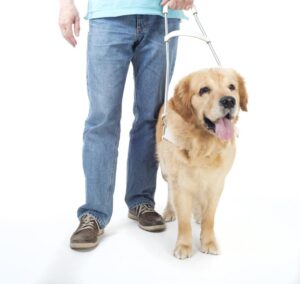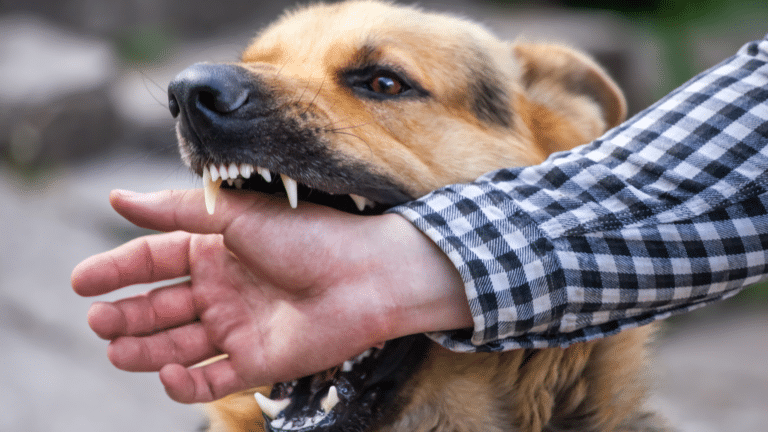 Many of us love dogs, whether it’s our own dog or other’s; dogs are “man’s best friend.” Dogs are also useful in certain lines of work, whether it’s as a K-9 unit for the police force or for hunting or herding. So is there a difference if you are bitten by your neighbor’s pet dog or a farmer’s herding dog? Yes there is, and a recent opinion from the Colorado Court of Appeals, Legro v. Robinson, delves into how little nuances in the law can make all the difference in a case.
Many of us love dogs, whether it’s our own dog or other’s; dogs are “man’s best friend.” Dogs are also useful in certain lines of work, whether it’s as a K-9 unit for the police force or for hunting or herding. So is there a difference if you are bitten by your neighbor’s pet dog or a farmer’s herding dog? Yes there is, and a recent opinion from the Colorado Court of Appeals, Legro v. Robinson, delves into how little nuances in the law can make all the difference in a case.
Premises Liability Act
Colorado’s Premises Liability Act (PLA), C.R.S. § 13-21-115, provides for actions against landowners when a person is injured on their property due to a condition on the property. There are of course statutory limits to who and how to recover. In particular, what happens if you are bitten by a dog on someone else’s property?
In Legro v. Robinson, the Court of Appeals in an interlocutory appeal (this is an appeal that happens before a trial court makes a final ruling), had to decide whether the plaintiff, Ms. Legro, was a trespasser as to the defendants. Under the PLA, a trespasser can only recover damages for an injury where the landowner caused the injury willfully or deliberately by his or her actions. In relation to premises liability actions, plaintiffs are categorized as either:
- an “invitee” – one who has “express or implied representation” by the landowner to be on the property
- a “licensee” – one who has “permission or consent” to be on the landowner’s property
- a “trespasser” – one who is on the property “without the landowner’s consent.”
In this case the plaintiff was on U.S. Forest Service’s property as party of a bike race. The defendants, the Robinsons, had a grazing permit for that part of the property for their sheep. During the race the Robinson’s control dogs attacked Ms. Legro. The Court of Appeals ruled that Robinsons had consented that Ms. Legro could be on the property due to the Robinson’s relationship with the U.S Forest Service, and thus the permit provided “sufficient basis to infer that the Robinsons, on accepting the permit” consented to this entry on the property.
Therefore, the Court had to decide if Ms. Legro was an invitee or a licensee. The Court concluded that she was a licensee as to the Robinson’s because she was not “affirmatively” invited onto the property by the Robinsons.
Mike McDivitt was recently interviewed by KRDO as part of a story discussing the legal issues involved in a dog bite case.
Working Dog Exemption
After dealing with that issue, the court turned to whether the dog bite statute’s working dog exemption (C.R.S. § 13-21-124) applied in this situation. Subsection 2 of this statute imposes strict liability (a type of liability that does not require intent or negligence, but occurs when someone has breached a duty to make something safe) on a dog owner whose dog causes serious bodily injury or death to a person who is lawfully on public or private property. There are of course exceptions to this statute, including the “working dog exemption” which states that strict liability does not apply:
[w]hile the dog is working as a hunting dog, herding dog, farm or ranch dog, or predator control dog on the property of or under the control of the dog’s owner.
C.R.S. § 13-21-124(5)(f).
The Court looked to see whether the grazing permit conferred a property interest to the Robinson which would qualify that their dogs were working “on the property of” the Robinson’s. The Court concluded that the permit did not give them a property interest as it only conferred a “nonexclusive, revocable license to access federal lands for a limited purpose.” Thus, the dogs were not working “on the property of…the dog’s owner.” The Court however, did not discuss whether the dogs were working “under the control of the dog’s owner.” While this is certainly a win for the plaintiff here, there is still argument open for whether the dogs were working “under the control of the dog’s owner” at the time the injury occurred.
Providing for strict liability regarding dog bites is an important mechanism in court for those who have been injured by an aggressive dog; however, it is not without its exceptions and this case may fall into one. Regardless, if you are seriously injured from a dog attack, don’t let these exceptions keep you from contacting an experienced attorney who knows the ins and outs of the dog bite statute.
Is it possible to receive compensation for a dog bite injury caused by a working dog?
Yes, it is possible to receive compensation for a dog bite injury caused by a working dog. However, special exemptions for working dogs make it difficult to win a case. Here, we’ll cover how to obtain compensation for this case type.
Working dog injuries are not always exempt from liability claims. The following conditions must be met for the working dog exemption to apply:
- The dog must be somehow specified as a working dog (e.g., registered as a sheepherder, a vest-wearing police dog, etc.) and not simply a working breed.
- The dog must be actively performing their duties. For example, if someone’s sheep-herding dog bites you while you are in a living room, you may have a case. If the dog bites you as you approach a sheep in the field, you may not.
- The dog must be performing its duties in the proper location. For example, in the Legro v. Robinson case, a man’s working dog bit a woman while she was on public land. The court determined that, though the defendant had grazing rights to the land, the land was not their property. This allowed the plaintiff to successfully sue the dog’s owner for her personal injuries.
If the dog that injured you doesn’t meet the above criteria, you may have a case. Even if it seems like the dog should be exempt, contact a dog bite injury lawyer. They may be able to identify flaws in the working dog exemption and use them to hold the dog owner liable.
If you found this blog interesting, you may enjoy the following:

